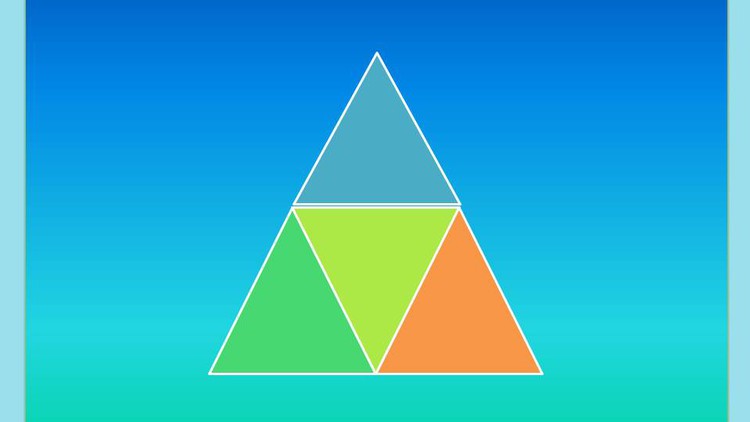
Big Data Concepts,History & Jobs in Big Data,Types,Characteristics,Categories,Frameworks,Programming languages,Paradigms
Why take this course?
🎉 Master Big Data Fundamentals with [Instructor Name]’s Online Course! 📚
Course Title: Learn Big Data Basics 🚀
Course Headline: Dive into the World of Big Data – Concepts, History, Jobs, and More!
Welcome to the “Learn Big Data Basic” online course! This comprehensive guide is meticulously crafted for beginners eager to embark on a journey through the vast landscape of Big Data. By the end of this course, you’ll have a solid understanding of what Big Data entails, its historical evolution, the types and characteristics that define it, the categories it encompasses, the frameworks and programming paradigms in use, and the languages that power them.
What You Will Learn:
Big Data Concepts: 🧠
- Understand the essence of Big Data and its importance in today’s data-driven world.
- Explore the evolution of data management and the emergence of Big Data technologies.
History & Jobs in Big Data: 🕰️💼
- Trace the historical development of Big Data and the key milestones that have shaped its trajectory.
- Discover various jobs within the Big Data ecosystem and the skills required to excel in these roles.
Types of Big data: 📊
- Dive into the different types of Big Data: Structured, Unstructured, and Semi-structured.
- Learn how each type influences the way we collect, store, and analyze data.
Characteristics of Big Data: 🎯
- Identify the key characteristics that make Big Data unique: Volume, Velocity, Variety, Veracity, and Value.
- Understand how these characteristics challenge traditional data processing techniques.
Categories of Big Data: 📦
- Explore the different categories of Big Data and their practical applications in various industries.
Big Data Frameworks & Programming Paradigms: 🛠️
- Get to know major Big Data frameworks like Hadoop, Spark, and Flink.
- Understand the programming paradigms that are essential for Big Data solutions.
Big Data Programming Languages: 🖥️
- Master the most commonly used languages for Big Data processing: Python, R, Scala, and Java.
Course Structure:
This course is designed to take you through a logical progression of topics, ensuring you build a strong foundation in Big Data concepts before diving into more complex frameworks and programming languages. Here’s what you can expect:
- Big Data Concepts: We start by demystifying Big Data and setting the stage for your learning journey.
- History & Jobs in Big Data: Uncover the evolution of Big Data and the exciting career opportunities it presents.
- Types of Big data: Learn how different types of data require different approaches to manage and analyze them effectively.
- Characteristics of Big Data: Understand the challenges that come with the Volumed, Velocity, Variety, Veracity, and Value of Big Data.
- Categories of Big Data: Explore the various categories of Big Data and their significance across different sectors.
- Big Data Frameworks & Programming Paradigms: Get hands-on experience with key technologies that power Big Data applications.
- Big Data Programming Languages: Master the languages that are critical for processing and analyzing large datasets.
Why Take This Course?
In an era where data is king, understanding Big Data is not just beneficial—it’s essential. Whether you’re looking to advance your current career or pivot into a new field, this course equips you with the knowledge and skills to succeed in a Big Data-centric world.
Enroll now and join thousands of learners who have already embarked on this transformative learning experience! 🌟
About [Instructor Name]:
With years of industry experience and a passion for demystifying complex topics, [Instructor Name] is the perfect guide to accompany you on your Big Data journey. [He/She/They] brings real-world insights and practical examples to bring these concepts to life.
Ready to Get Started?
Click the “Enroll Now” button to begin your adventure into the world of Big Data! 🌐🚀
Note: This course description is a template and should be customized with the actual instructor’s name, credentials, and any additional unique selling points of the course. Enjoy teaching and learning!
- Dive into the foundational principles that power the explosion of data in today’s digital landscape.
- Uncover the evolutionary journey of Big Data, tracing its origins and understanding the catalysts that propelled its growth.
- Explore the diverse ecosystem of Big Data, from its fundamental building blocks to the advanced technologies that manage and analyze it.
- Gain insight into the defining characteristics that differentiate Big Data from traditional data, such as volume, velocity, variety, veracity, and value.
- Dissect the various classifications and typologies of Big Data, enabling you to understand its multifaceted nature.
- Understand the core concepts behind prominent Big Data frameworks, grasping how they facilitate efficient data processing and storage.
- Become familiar with the essential programming languages and their roles in manipulating and extracting insights from large datasets.
- Grasp the fundamental computational paradigms that underpin Big Data processing, learning how distributed systems operate.
- Develop an understanding of the critical roles and career paths available within the burgeoning Big Data industry.
- Learn to identify potential challenges and limitations associated with Big Data implementation and analysis.
- Appreciate the ethical considerations and best practices when working with vast quantities of data.
- Discover how Big Data is transforming various industries, driving innovation and informed decision-making.
- Understand the importance of data governance and security in the context of Big Data environments.
- Explore the concept of data pipelines and how data flows through different stages of processing.
- Gain a basic understanding of data warehousing and data lakes as essential components of Big Data infrastructure.
- Learn about the different types of data structures commonly used in Big Data.
- Recognize the significance of scalability and performance in Big Data solutions.
- PROS:
- Provides a comprehensive yet accessible introduction to a highly relevant and in-demand field.
- Equips learners with the foundational knowledge to pursue further specialization in Big Data technologies and roles.
- CONS:
- Does not delve into hands-on implementation or practical coding exercises.